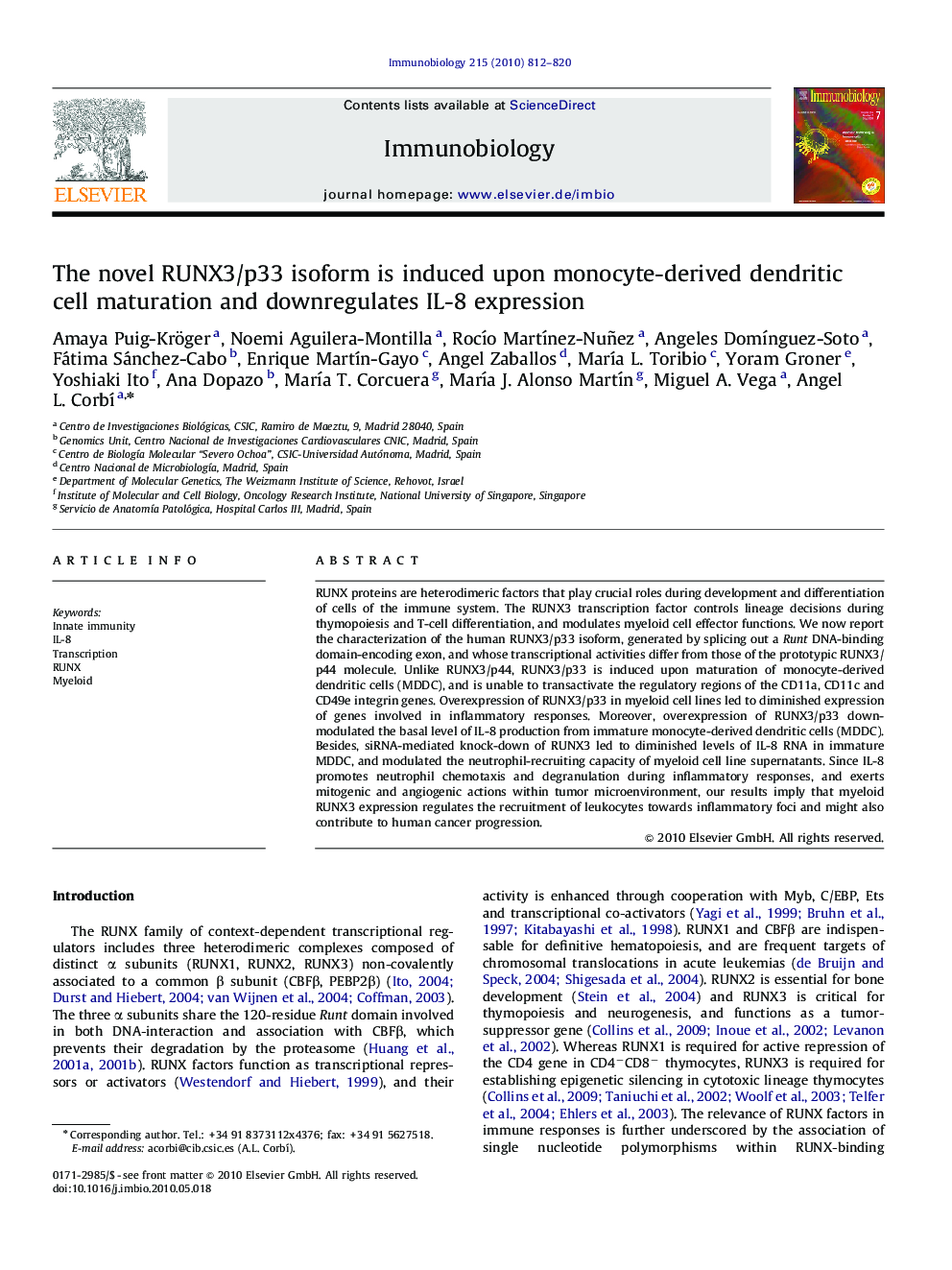| Article ID | Journal | Published Year | Pages | File Type |
|---|---|---|---|---|
| 2183251 | Immunobiology | 2010 | 9 Pages |
RUNX proteins are heterodimeric factors that play crucial roles during development and differentiation of cells of the immune system. The RUNX3 transcription factor controls lineage decisions during thymopoiesis and T-cell differentiation, and modulates myeloid cell effector functions. We now report the characterization of the human RUNX3/p33 isoform, generated by splicing out a Runt DNA-binding domain-encoding exon, and whose transcriptional activities differ from those of the prototypic RUNX3/p44 molecule. Unlike RUNX3/p44, RUNX3/p33 is induced upon maturation of monocyte-derived dendritic cells (MDDC), and is unable to transactivate the regulatory regions of the CD11a, CD11c and CD49e integrin genes. Overexpression of RUNX3/p33 in myeloid cell lines led to diminished expression of genes involved in inflammatory responses. Moreover, overexpression of RUNX3/p33 down-modulated the basal level of IL-8 production from immature monocyte-derived dendritic cells (MDDC). Besides, siRNA-mediated knock-down of RUNX3 led to diminished levels of IL-8 RNA in immature MDDC, and modulated the neutrophil-recruiting capacity of myeloid cell line supernatants. Since IL-8 promotes neutrophil chemotaxis and degranulation during inflammatory responses, and exerts mitogenic and angiogenic actions within tumor microenvironment, our results imply that myeloid RUNX3 expression regulates the recruitment of leukocytes towards inflammatory foci and might also contribute to human cancer progression.
